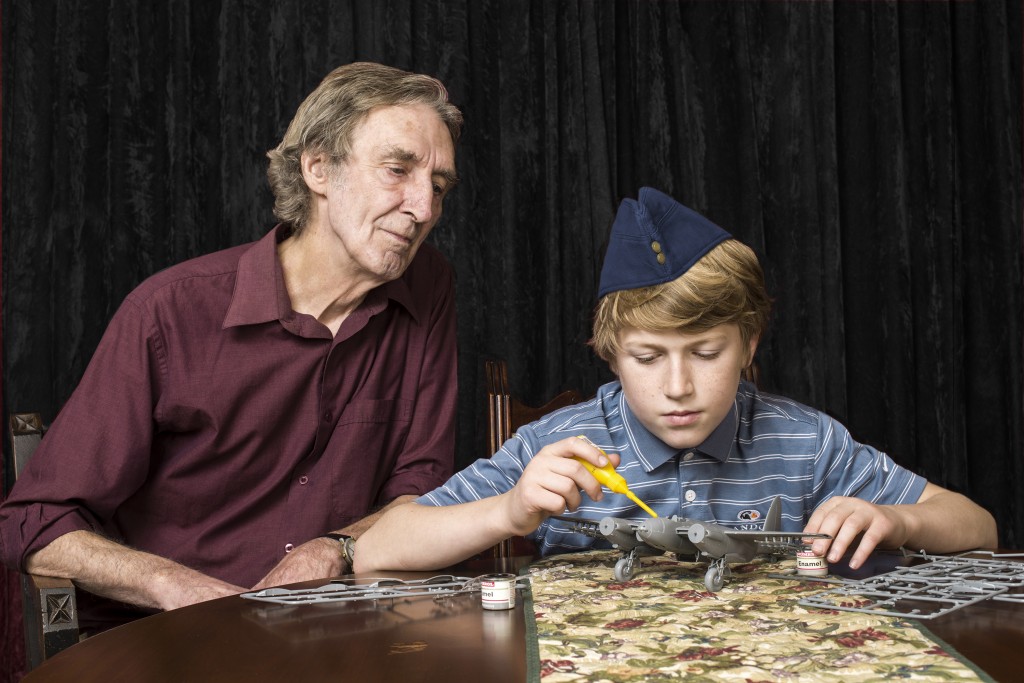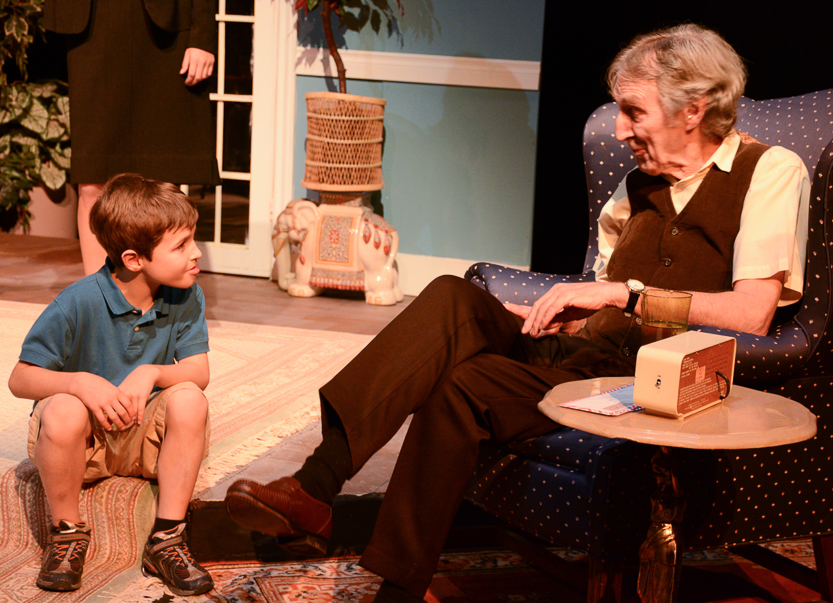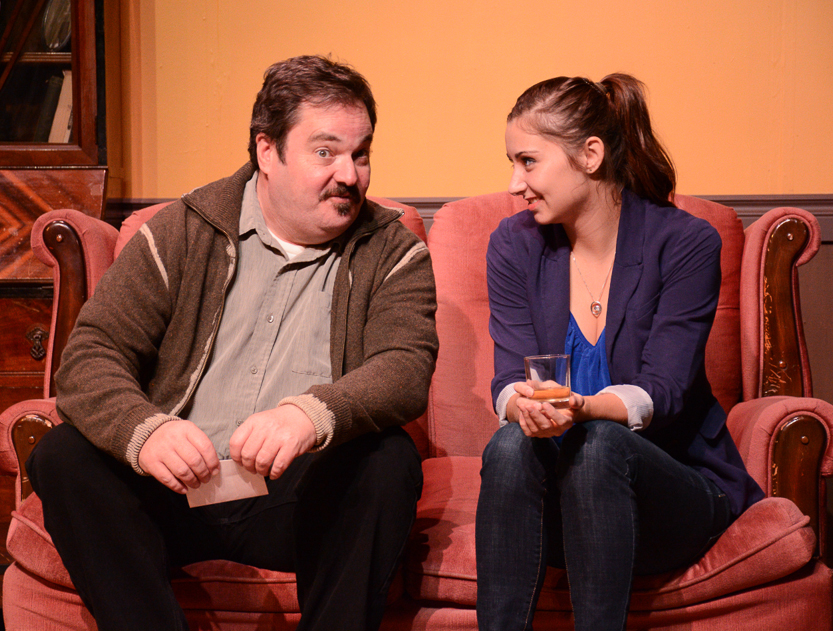
Credit: Nancy Caldwell
At Jericho Arts Centre until December 1
604-224-8007/www.unitedplayers.com
Posted November 12, 2013
Closure. We hear the word everyday on the news following a disaster or a crime. Everyone wants closure.
But Gordon Devereaux (portrayed by John Burnside) doesn’t want closure. A veteran fighter pilot of WWII, he doesn’t want to be reminded about the war at all. He doesn’t want to remember the devastation he wreaked on men, women and children in the countless European cities and towns he bombed. He has never even spoken to his wife Helen (Nancy Ebert) about his wartime experience. Apparently, veterans often keep all that terror and guilt bottled up; today, Post Traumatic Stress Disorder is well recognized and sufferers are urged to get help.
In Ron Blicq’s play, Donald Barlow (David Campbell) does want closure. According to the program notes, more than 30,000 Canadian servicemen fathered children overseas, many of them without ever knowing. Devereaux was one of those fathers; Donald was one of those babies. Now that his mother has died, Donald wants to find his father.
Set design by Todd R. Parker establishes the two locales: stage right is a cozy-looking parlour, wood-trimmed, middle-class Nottingham, England – the home of Donald and Daphne Barlow; stage left is a lighter, brighter Vancouver living room – the home of Gordon and Helen Devereaux. The two rooms share a common upstage doorway through which most of the entrances and exits are made in an awkwardly repeated and alternating pattern: characters enter the scene through the doorway, do the scene, and exit again through the same doorway. Less formulaic would be to have the lights go down on one room, leaving the actors in shadow (and possibly exiting the stage under cover of darkness) while shifting the action to the other half of the stage. The way it’s staged it’s a bit like a revolving door.

Credit: Nancy Caldwell
Directed by Bernard Cuffling, this is a world premiere of Closure and offered as a gift from Blicq to United Players. It’s certainly timely with all the Remembrance Day events happening around us. Blicq brings to the script his own experience as a WWII navigator, flying in Mosquito fighter/bombers with the RCAF, then flying as a navigator with the RAF Bomber Command. The playwright’s enthusiasm for flying is obvious especially in the well-executed scene with young Gordie Summers (Jonah Heyl the night I attended). Spotlighted and seated on chairs, Devereaux teaches Gordie to ‘fly’ and through this experience, the old vet relives his wartime exploits. I found it disturbing, however, that in re-enacting the bombing raids with the young boy, Devereaux’s response is still elation as he gives instructions to Gordie: “Bomb doors open. Release bombs. Wow, we got it.” What kind of lesson is that for a kid?
I saw this play the night after opening – notoriously the worst night in the run. All the excitement of opening comes down to doing the show night after night. There were some awkward pauses, some misspoken words, but nothing too serious. Accents were all over the place, though, and as one audience member pointed out, accents within one family should be consistent.
Many of the actors were working too hard and there was some ‘actorly’ acting: second night syndrome, I know. The cast includes Kate Robbins (as Daphne Barlow), Laura Miller (Claire Summers), and Mario von Riedemann (Paul Hoogstra); alternating with confident, young Jonah Heyl (as young Gordie) is his brother Amitai Heyl.
United Players is a non-professional company but it has fooled us on many occasions by being slickly professional. Closure has three weeks to settle in and perhaps over time it will have achieved the polish we’ve come to expect from this ambitious little company.

Credit: Nancy Caldwell

